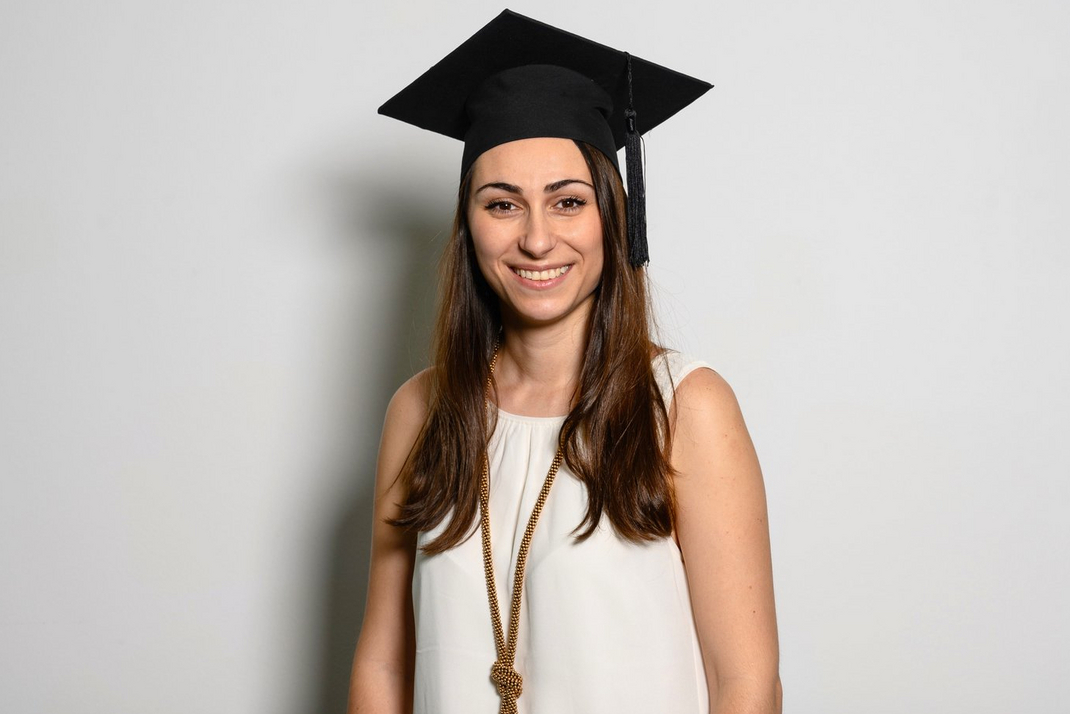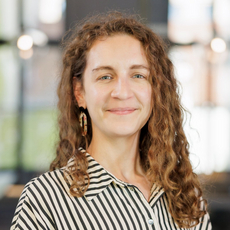
Prof. Alexandra Ion: From HPI to Carnegie Mellon University
Prof. Alexandra Ion came to HPI as a PhD student and successfully completed her PhD on "Metamaterial Devices" in 2019. She is now an Assistant Professor at Carnegie Mellon University in the USA. In her interview, she talks about her research and career from student to professorship.
Q: Alexandra Ion you are an Assistant Professor at the Human-Computer Interaction Institute of the School of Computer Science at Carnegie Mellon University. When did you first get involved with computer science?
Rather late, when I started my bachelor's degree. I had no idea if I was going to enjoy it. But, it turns out, the answer is YES!
Q: Why did you decide to do a PhD at HPI?
I wrote my master thesis on Human Computer Interaction and wanted to continue research in this area. Because Prof. Patrick Baudisch is renowned in this research field, I applied for a PhD position in his lab at HPI.
Q: How did you come up with the topic of "metamaterial devices" for your doctorate?
We did a lot at the department in the direction of fabrication. The concept of metamaterials as materials whose cell structure is engineered, for example, to absorb energy or change their natural way of dealing with waves, was already known. But we asked ourselves, what else is possible?
When I developed a door handle from a cell structure, I came up with the idea of thinking of metamaterials not as a material, but as a device with which I want to fulfill a purpose. We then programmed software that allows users to easily develop metamaterials themselves in the browser. The program is still used today.
Q: Why is a doctorate in the computer science worthwhile?
I recommend a doctorate simply because of the process - according to the motto: The way is the goal. You work on the latest technologies, especially in CS. It is exciting to be able to actively influence the future of technology and society with your own research.
Q: Did you know right away that you wanted to do a doctorate?
No, I had no idea. I always thought that was only possible for highly gifted people. I came to research through my master's thesis. That is when I realized that this field suited me and was fun.
Q: How do I approach the topic of doctoral studies as a student?
For HPI students, taking up a doctorate is relatively straightforward because they are often already involved in research at HPI. This is very useful because they will have published something before they graduate. Making contacts during your studies is also essential. You should build a network: Talking, sharing, showing one's work. This is also conducive to professional research.
Q: What are your goals for your professorship in the U.S.?
I want to better understand metamaterials and their future. To do that, I want to do good research and work with a team that is enthusiastic about it. Carnegie Mellon University also has a strong commitment to anti-racism. That is where I want to get involved. An equal future for all those who come after us is fundamental.
Q: What was your best HPI moment?
A video shoot for a colleague's publication , that involved, among other things, a dinosaur made out of plastic bottles. It was exciting to be part of it.
Thank you very much for the interview.
Categories
- [ Alumni ]
Contact persons

Last change: 12/09/2024


